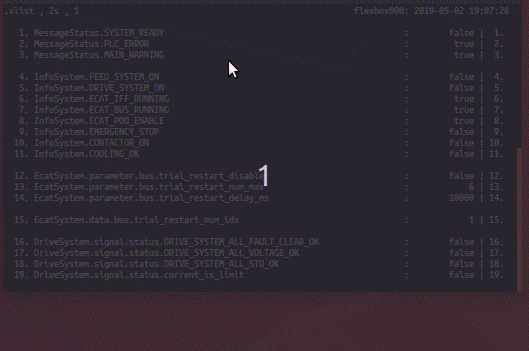Uso il watchcomando per vedere il contenuto della mia directory cambiare mentre viene eseguito uno script (tramite watch ls dir/)
È un ottimo strumento, tranne per il fatto che non riesco a scorrere verso il basso o verso l'alto per vedere tutti i contenuti una volta che il numero di voci riempie la lunghezza verticale dello schermo.
C'è un modo per fare questo?

screencomando conwatch